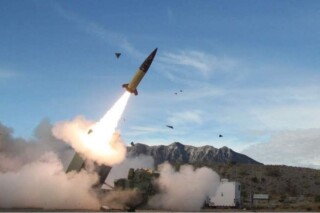In his first major speech to Congress on Tuesday, President Donald Trump assured U.S. allies that he is committed to NATO, but some of his fellow Republicans have been blocking a Senate vote to expand the alliance for months, Dnevne Novine newspaper carries Reuters’ report.
The delay of the Senate’s consideration of Montenegro’s accession to the alliance has fuelled questions about whether Trump’s administration and his party will stand up to Russia despite the president’s desire for better relations.
Montenegro, a former Yugoslav republic with a population of 650,000, hopes to win the approval of all 28 NATO allies in time to become a full member at a summit in May, Reuters writes. By late February, it had been approved by 24 members see Montenegro’s accession as a way to counter Russia’s efforts to expand its influence in the Balkans.
The Senate Foreign Relations Committee has twice voted in favour of Montenegro, first in December and again in January.
But objections by Republican Senators Rand Paul and Mike Lee have blocked a vote in the full Senate.
At a September hearing, Paul questioned the wisdom of angering Russia by allowing Montenegro that could not play a significant role in defending the United States to join the trans-Atlantic alliance.
“I think we need to think this through, and we need to have a little bit more of a debate,” he said then.
On Wednesday, Paul said he still objected.
“I’m not so sure what they add to our defence. So I’m not so sure it’s a great idea that somehow Montenegro’s going to defend the United States,” Paul told Reuters.
A spokesman for Lee said the senator objected only to the Senate considering the matter with a quick voice vote, saying he wanted a roll call so every member’s position would be recorded.
Lee has not made his opinion on Montenegro’s accession public, the spokesman said.
Asked if a roll call vote would be scheduled, a spokesman for Majority Leader Mitch McConnell said he had no updates to provide. If there is a Senate vote, Montenegro’s accession is expected to receive the two-thirds majority needed to pass.
Montenegrin officials blame Moscow for an extended campaign intended to prevent the country from joining NATO. Last month, they said they had evidence Russia was involved in a plot to overthrow its government during an election last October, an accusation Moscow dismissed.
The charges echoed assertions by U.S. intelligence that Russia sought to interfere in the 2016 U.S. election.
Trump could still keep Montenegro from joining by refusing to formally deposit the country’s Protocol of Accession. Doing so would signal a significant rift with his own party in Congress.
Foreign minister Srdjan Darmanovic told Reuters last month that he had been assured that the Senate would ratify his country’s accession by May.
Trump has called for closer ties to Moscow and criticized NATO as obsolete. In his speech to a joint session of Congress on Tuesday night, he reaffirmed support for the alliance, but said he expects U.S. allies to pay more of the cost of their own security needs.




